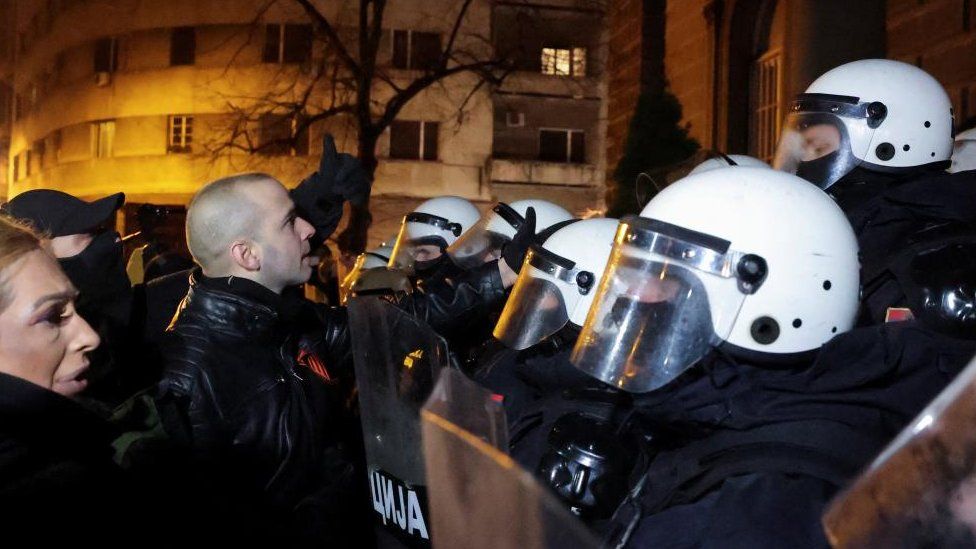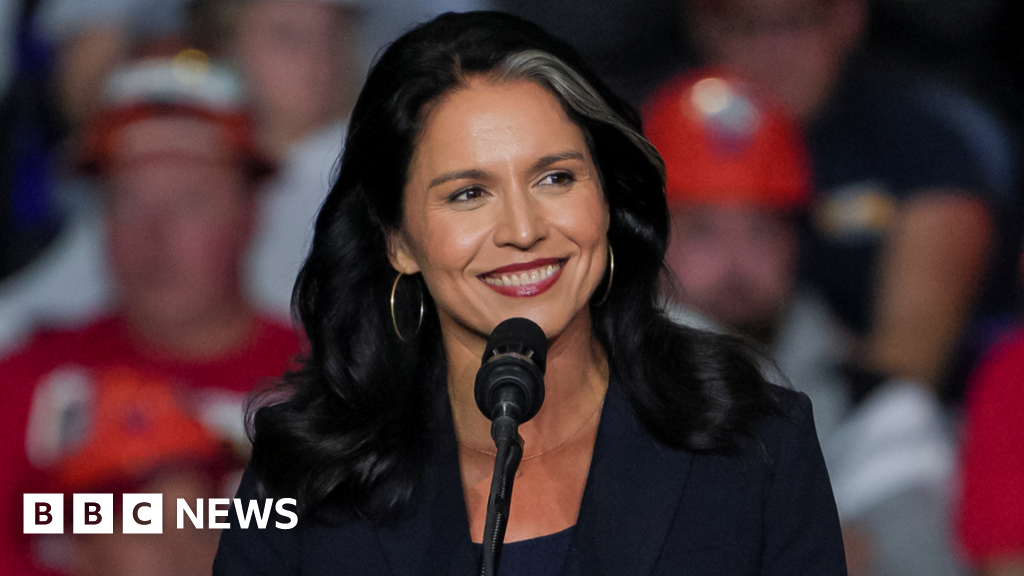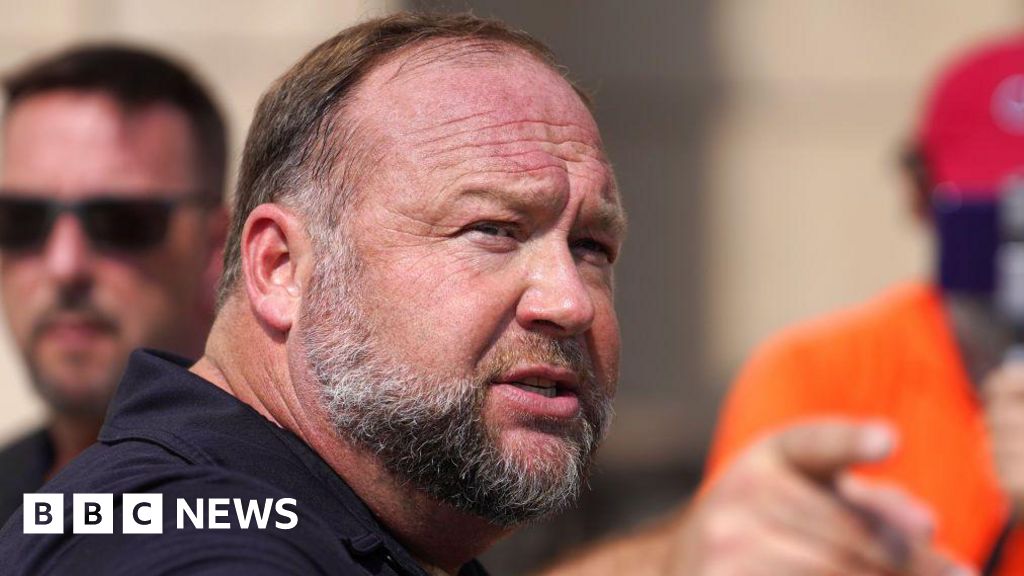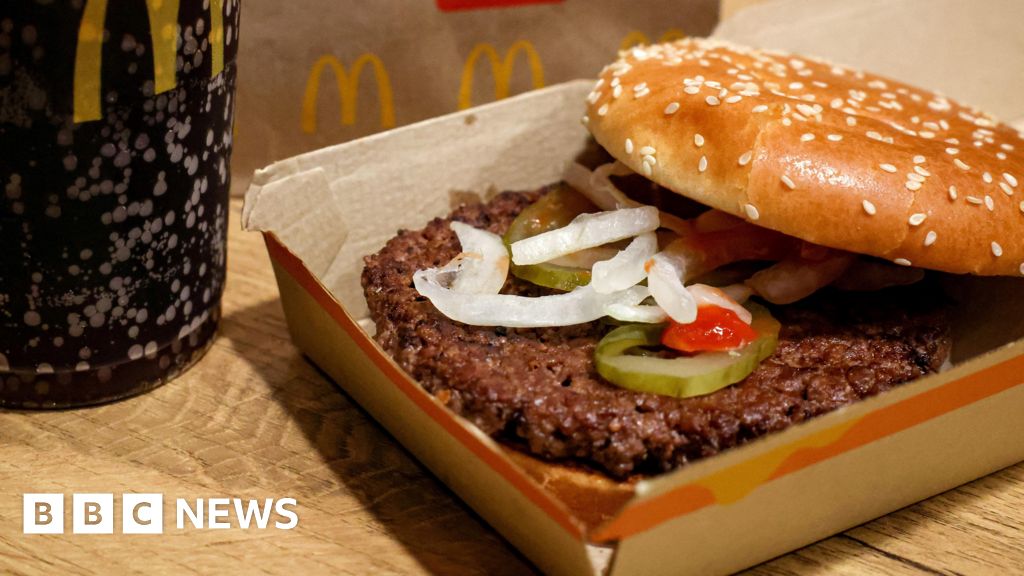ARTICLE AD BOX
 Image source, Reuters
Image source, Reuters
Police blocked far-right leader Damjan Knezevic as he and other protesters tried to storm the presidency
By Joe Inwood & Albana Kasapi
BBC Newsnight, Belgrade
Pro-Russian activists in Serbia joined nationalist protesters outside the presidency this week, in the latest indication of rising Russian influence.
Chanting "no surrender" and "treason", they threatened to riot if Serbia backed an EU plan to normalise relations with Kosovo.
President Alexander Vucic denounced the protesters as "anti-Serbian".
The government said it did not believe Moscow stoked the protests but the war has heightened tensions in Belgrade.
Death threats were made towards the president if he signed a deal on Kosovo and three men have been charged with calling for a violent change of Serbia's constitutional order.
Among them is Serbian far-right leader Damjan Knezevic, who organised the protests. He has publicly backed Russia's Wagner mercenary group, which has played a big role in Russia's war in Ukraine.
He was recently pictured visiting Wagner's Russian headquarters in St Petersburg. Another man was arrested apparently taking a sniper rifle to the protest.
Mr Vucic went on TV to accuse the protest organisers of being paid for with foreigners' cash, vowing that Serbia would never be defeated by lies, threats and a few rifles. "I don't need someone from Wagner to tap me on the shoulder and tell me what I can and can't do," he said.
The Russian ambassador condemned threats against the Serbian leader. But almost a year into the war in Ukraine, it is clear Serbia is struggling to maintain ties with Moscow while moving closer to the EU.
"I would do anything for Mother Serbia and Mother Russia. They are the same thing," said Vlado Stanic, wearing a T-shirt showing a stern-faced Vladimir Putin and his well-known quote on the invasion: "Everything is going according to plan."
Stanic displays an extreme version of a more common mindset, a form of Pan-Slavism that believes Serbia has historic and religious links to Russia.
He speaks of "Tsar Putin" in almost messianic terms, parroting Russian propaganda about its fight against "fascists and Nazis". In 2015 he travelled to eastern Ukraine to help Russian forces.
Image source, Vlado Stanic
Image caption,Vlado Stanic served a jail sentence in Serbia after he joined Russian forces fighting in eastern Ukraine
He refuses to speak about what he did in Ukraine's Donbas region, but on his return to Serbia was sent to jail.
Cedomir Stoikovic, who is one of Serbia's leading voices against Russian influence, warns that Serbia is under "hybrid occupation", which has resulted in in the widespread support that Russia now enjoys.
"For 15 years Russia has conducted a huge operation in Serbia. Their intelligence service is here on a massive scale. They put money here, buying media and news editors."
He has tried to launch prosecutions against the Russian ambassador and the Wagner group and is now defending a young Ukrainian woman he claims has been unfairly treated because of her nationality.
The claims are difficult to prove but news coverage of the Russian war in Serbia is often dramatically at odds with other European countries.
One newspaper ran a story in the run-up to the invasion with the infamous headline "Ukraine attacks Russia". Another ran a front-page story claiming that Ukrainian President Volodymyr Zelensky had accused the West of "betraying" Ukraine, when he had said nothing of the sort.
Serbia is something of an outlier among European nations in its support for Russia. It has refused to join Western sanctions, although President Vucic has condemned Russia's invasion.
Vlad, a souvenir seller in Belgrade's central Kalemegdan park, is doing a brisk trade in pro-Moscow T-shirts. One bears the Z logo that has become the hallmark of Russia's war. Another bestseller boasts President Putin riding a bear.
"It isn't Russia against Ukraine, it is Russia against Nato," he asserts, reiterating another Putin mantra.
Many in Serbia have never forgiven the West's defensive alliance for 1999 airstrikes against the forces of Slobodan Milosevic.
They brought to an end to Serbia's brutal ethnic cleansing of Albanians in Kosovo, but also caused a lingering hatred amongst many Serbs.
Image source, Reuters
Image caption,Kosovo celebrated 15 years of independence on Friday but it is not recognised by Serbia
Kosovo is the theme that runs through all of this and a Nato-led force is still based there.
Considered by many here to be an essential part of Serbian territory, Kosovo declared independence 15 years ago, a result of years of ethnic tension, bloody conflict and genocidal attacks.
Relations have been fraught, and Serbia does not recognise Kosovo as an independent state, nor do the 50,000 ethnic Serbs who live there.
But later this month, President Vucic will meet Kosovo's prime minister in Brussels with the US and EU hoping that they sign a peace plan that would send Serbia further on the road towards joining the European Union, and further out of Russia's orbit.
Joe Inwood reports for BBC Newsnight and Albana Kasapi for The World Tonight on BBC Radio 4.

 1 year ago
26
1 year ago
26








 English (US)
English (US)